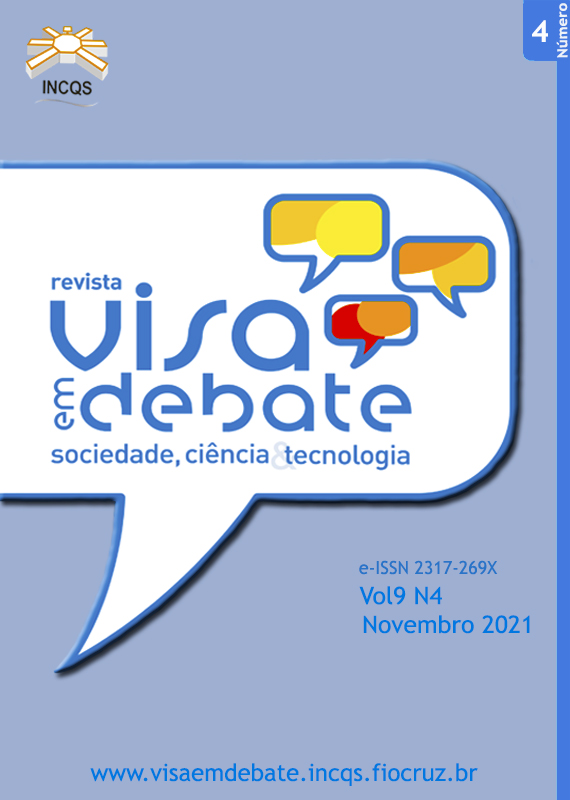Can the vaccination against COVID-19 be compulsory in Brazil? The legal issue and political dispute
DOI:
https://doi.org/10.22239/2317-269x.01856Keywords:
Right to Health; Coronavirus Infections; Public Health; Immunization Programs; Vaccination RefusalAbstract
Introduction: The recent uproar around COVID-19 hangs over the rights and duties of the population regarding vaccination and mass immunization. The exercise of individual freedom and the possible imposition of a measure that makes vaccination compulsory may be the focus of a political dispute around the adoption of scientific criteria for government decision-making, and with that, bring serious collective consequences in relation to the spread and the lack of control of the disease. Objective: To study whether compulsory vaccination against COVID-19, once instituted by law or normative act, will have a legal basis in view of fundamental rights and analyze whether the political dispute around the vaccine may be influencing its regulation. Method: Exploratory and descriptive study developed through documentary and bibliographic research, collection of texts from the World Health Organization, Ministry of Health, federal government and the state of São Paulo, analysis of national legislation and recent decisions by the Supreme Court. Results: It was observed that it is possible to establish compulsory vaccination in Brazil, ensuring fundamental rights; however, political issues are influencing decision-making based on technical-scientific criteria for health surveillance. Conclusions: The restriction of individual freedom finds support in the search for health in the collective interest, as long as it does not go beyond the limits of the physical integrity of the citizen and human dignity, the use of physical coercion being prohibited. The political dispute led by some public agents may have caused delays and setbacks in the vaccination of the Brazilian population, an effective way to control the pandemic.
Downloads
Downloads
Published
Issue
Section
License
Copyright (c) 2021 Health Surveillance under Debate: Society, Science & Technology (Vigilância Sanitária em Debate: Sociedade, Ciência & Tecnología) – “Visa em Debate”

This work is licensed under a Creative Commons Attribution-NonCommercial 4.0 International License.
COPYRIGHT ALLOWANCE The author (s) hereinafter designated as the ASSIGNOR hereby assign and transfer, free of charge, the ownership of the copyrights related to this ARTICLE to the Vigilância Sanitária em Debate: Sociedade, Ciência & Tecnologia (Health Surveillance under Debate: Society, Science & Technology) – Visa em Debate, represented by FUNDAÇÃO OSWALDO CRUZ, established at Av. Brasil, nº 4365, Manguinhos, Rio de Janeiro, RJ, Brazil, CEP 21045-900, under the conditions set out below: (a) The terms and conditions set forth in this Agreement shall apply to the following: 1. The ASSIGNOR declares that they s(he) is (are) the author (s) and owner (s) of the copyrighted property of the ARTICLE submitted. 2. The ASSIGNOR declares that the ARTICLE does not infringe the copyrights and / or other property rights of third parties, that the disclosure of images (if any) has been authorized and that they s(he) assume(s) full moral and / or property liability for its content, before third parties. 3. THE ASSIGNOR assigns and transfers all copyrights relating to the ARTICLE to the ASSIGNEE, especially the rights of editing, publication, translation into another language and reproduction by any process or technique. The ASSIGNEE becomes the exclusive owner of the rights related to the ARTICLE, and any reproduction, totally or partially, is prohibited in any other means of publicity, printed or electronic, without prior written authorization from the ASSIGNEE. 4. The assignment is free and, therefore, there will be no remuneration for the use of the ARTICLE by the ASSIGNEE.







